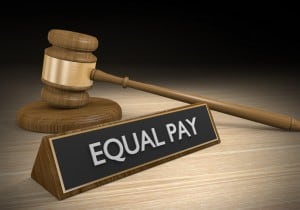
Insurance companies often try to force you to take a bad settlement by refusing to negotiate with you in good faith. They know you want and need the money to make repairs, buy new goods, have the money you need to pay your bills, or have the costs to buy replacement goods. So, they may delay, stall, raise invalid defenses, and purposely pressure you to settle your claim for much less than it is worth. In many cases, the insurance carrier may also deny your claim on false grounds, such as claiming that you are not covered under the insurance policy when you are legitimately covered.
The duty to negotiate in good faith includes both first-party and third-party claims. First-party claims, the type my firm most often handles, are direct claims by the policyholder for benefits. For example, if you suffer a fire loss or storm damage, you can demand payment for the personal property and cost to rebuild/repair under your homeowners’ insurance policy.
Holding insurers accountable when they fail to negotiate in good faith
You pay a lot of money (premiums) for your insurance policy. Sometimes, you need that money to start over. It is unconscionable for insurance companies to refuse to conduct timely inspections of your claim, fail to respond to calls, make unreasonable low-ball offers, or take positions that are not credible. Insurance companies that negotiate in bad faith can be forced to make more than the base amount of your claim – the amount that should have been paid in the first place. I, and the rest of our Tennessee bad faith lawyers, also demand that insurance companies who negotiate in bad faith:
- Pay the full amount the insured is owed under the policy;
- Pay interest for the delay;
- Pay punitive damages; and
- Pay statutory damages for their bad conduct
At the Gilbert Firm, our lawyers bring legal actions against unscrupulous insurance companies. You deserve to be paid on time and in full. Our Tennessee bad faith attorneys are experienced trial litigators. We help you get justice. For help getting your claim paid and holding insurance companies to their burden of good faith negotiation from a lawyer like Jonathan Bobbitt, Clint Scott or Brandon McWherter, please phone us at 888.996.9731 or fill out our contact form. We have offices in Nashville, Chattanooga, Memphis, Jackson, and Knoxville.
 Sexual harassment can happen to anyone, regardless of age, gender, sexual identity, or race. But it is not often we consider where sexual harassment occurs; most people don’t think past the workplace when it comes to the legal repercussions of sexual harassment. Understanding the scope of when and where sexual harassment can occur could empower victims to speak up. It could also make perpetrators think twice about the consequences before making inappropriate comments, gestures, intimations, or actions.
Sexual harassment can happen to anyone, regardless of age, gender, sexual identity, or race. But it is not often we consider where sexual harassment occurs; most people don’t think past the workplace when it comes to the legal repercussions of sexual harassment. Understanding the scope of when and where sexual harassment can occur could empower victims to speak up. It could also make perpetrators think twice about the consequences before making inappropriate comments, gestures, intimations, or actions. The Family and Medical Leave Act (FMLA) was developed so that workers could take needed time to attend to their own medical needs, care for newborns, nurse ailing parents, or assist other direct family members during illnesses for up to three months, while maintaining their own health benefits and employment position. Ethically, it is indubitably a sound legal precedent. Fiscally, however, it is often seen as unfairly burdening to employers. Some businesses go so far as to deny or endeavor to avoid following through on their legal obligations.
The Family and Medical Leave Act (FMLA) was developed so that workers could take needed time to attend to their own medical needs, care for newborns, nurse ailing parents, or assist other direct family members during illnesses for up to three months, while maintaining their own health benefits and employment position. Ethically, it is indubitably a sound legal precedent. Fiscally, however, it is often seen as unfairly burdening to employers. Some businesses go so far as to deny or endeavor to avoid following through on their legal obligations. The Equal Pay Act (EPA) is a federal law that protects employee pay rights. The EPA requires that women and men who do equal work receive equal pay, regardless of sex or gender. Whether jobs are equal depends on an analysis as to the equality of the skill, effort and responsibility of the actual job duties and not merely the job title. The duties should be performed under similar working conditions.
The Equal Pay Act (EPA) is a federal law that protects employee pay rights. The EPA requires that women and men who do equal work receive equal pay, regardless of sex or gender. Whether jobs are equal depends on an analysis as to the equality of the skill, effort and responsibility of the actual job duties and not merely the job title. The duties should be performed under similar working conditions. Qui tam lawsuits are actions brought by whistleblowers (called “Relators”) to expose fraud against the government. The basis for a qui tam case is the federal False Claims Act (FCA). The FCA was originally enacted to help expose Department of Defense fraud, but it has now been expanded to include many different types of fraud, including Medicaid and Medicare fraud. Other types of fraud—such as tax and securities fraud—are handled through other statutes.
Qui tam lawsuits are actions brought by whistleblowers (called “Relators”) to expose fraud against the government. The basis for a qui tam case is the federal False Claims Act (FCA). The FCA was originally enacted to help expose Department of Defense fraud, but it has now been expanded to include many different types of fraud, including Medicaid and Medicare fraud. Other types of fraud—such as tax and securities fraud—are handled through other statutes. The Equal Pay Act of 1963 requires that men and women who perform comparable work be compensated with equal pay, including “perks” like benefits packages, retirement plans, vacation time, etc. As with most laws, the devil is in the details. The Equal Pay Act looks at the skills, effort, and responsibility of workers who labor under similar working conditions in the same establishment.
The Equal Pay Act of 1963 requires that men and women who perform comparable work be compensated with equal pay, including “perks” like benefits packages, retirement plans, vacation time, etc. As with most laws, the devil is in the details. The Equal Pay Act looks at the skills, effort, and responsibility of workers who labor under similar working conditions in the same establishment. Regular readers of our blog know that we handle a lot of different types of claims: harassment and discrimination, FSLA violations and overtime claims, Equal Pay Act claims, etc. But, this is only a part of what we do as employment law attorneys in Tennessee. Simply stated, an employment lawyer who represents the interests of employees, works to be sure that employees (of all levels) and their rights in the workplace are protected. Sometimes that involves going to trial; sometimes it requires negotiating a severance; sometimes is requires settling a claim before the claim is filed; sometimes it requires representing a client in other types of negotiations. Some employment attorneys also work hand-in-hand with business owners and managers, crafting handbooks and offering in-house general counsel.
Regular readers of our blog know that we handle a lot of different types of claims: harassment and discrimination, FSLA violations and overtime claims, Equal Pay Act claims, etc. But, this is only a part of what we do as employment law attorneys in Tennessee. Simply stated, an employment lawyer who represents the interests of employees, works to be sure that employees (of all levels) and their rights in the workplace are protected. Sometimes that involves going to trial; sometimes it requires negotiating a severance; sometimes is requires settling a claim before the claim is filed; sometimes it requires representing a client in other types of negotiations. Some employment attorneys also work hand-in-hand with business owners and managers, crafting handbooks and offering in-house general counsel. Even the most naïve of my friends and colleagues will admit that there’s wage gap in this country. It’s not necessarily $0.77 on every dollar – sometimes it’s more; sometimes it’s less; sometimes it’s in the boardroom; sometimes it’s on the
Even the most naïve of my friends and colleagues will admit that there’s wage gap in this country. It’s not necessarily $0.77 on every dollar – sometimes it’s more; sometimes it’s less; sometimes it’s in the boardroom; sometimes it’s on the